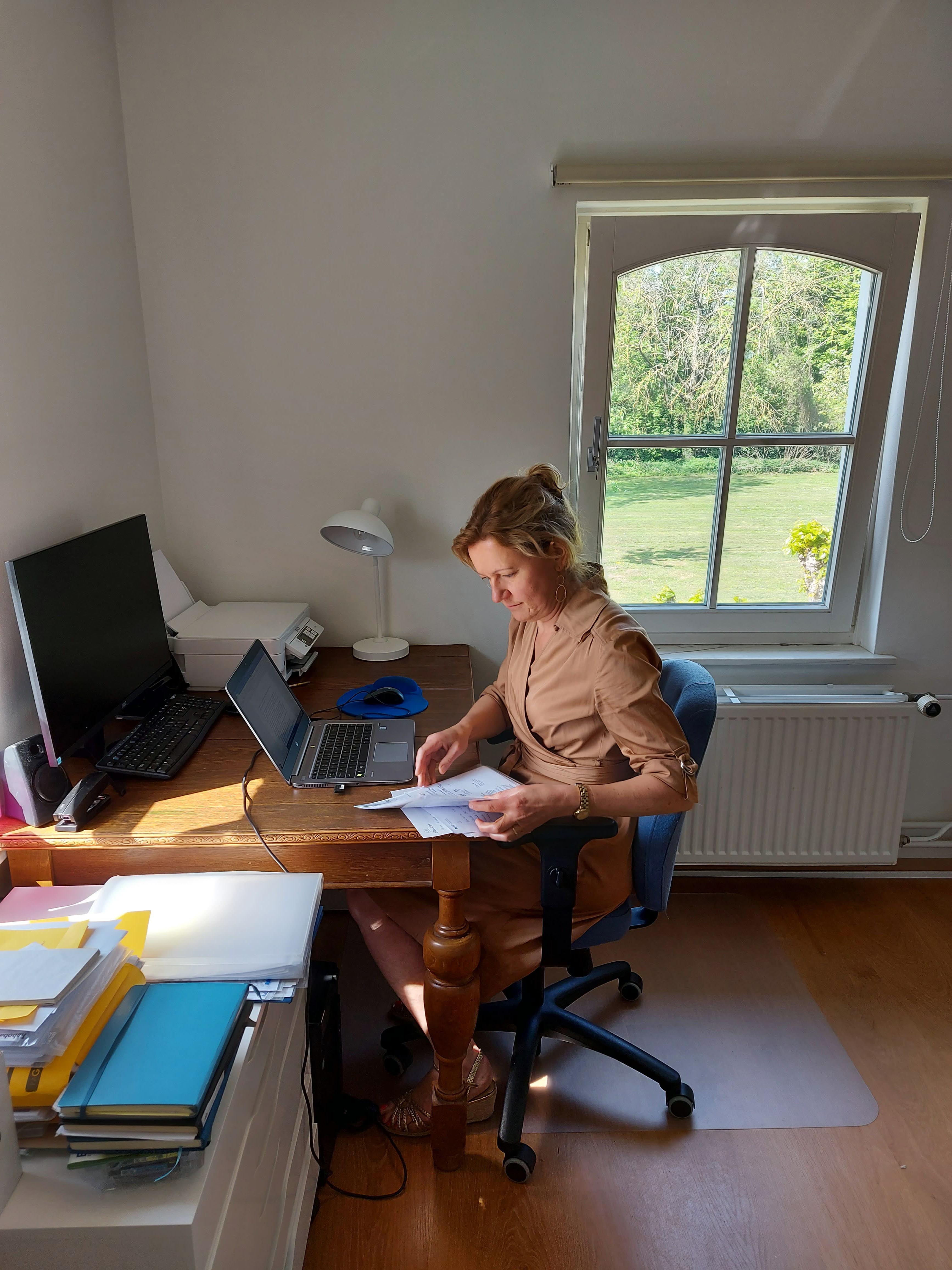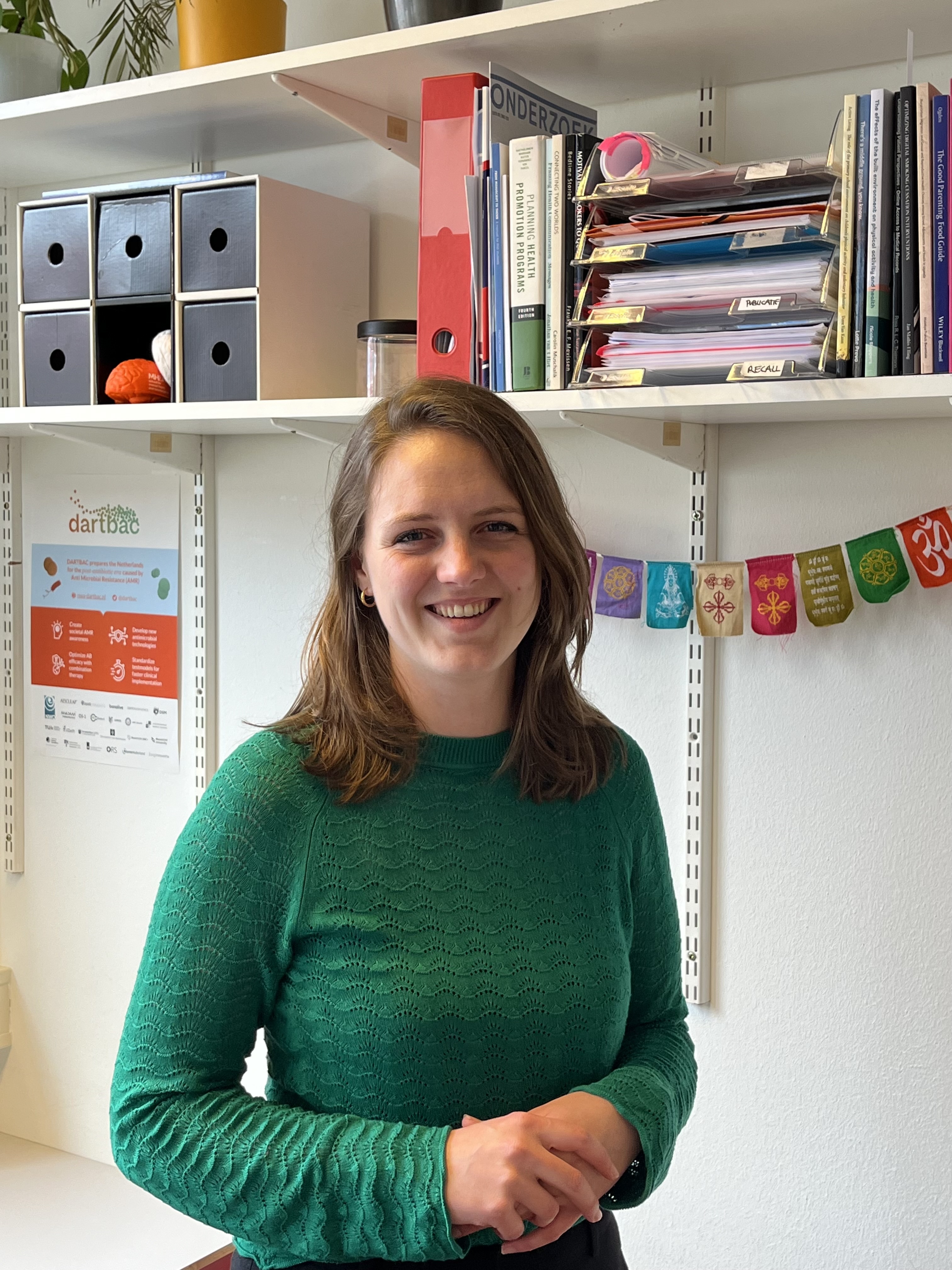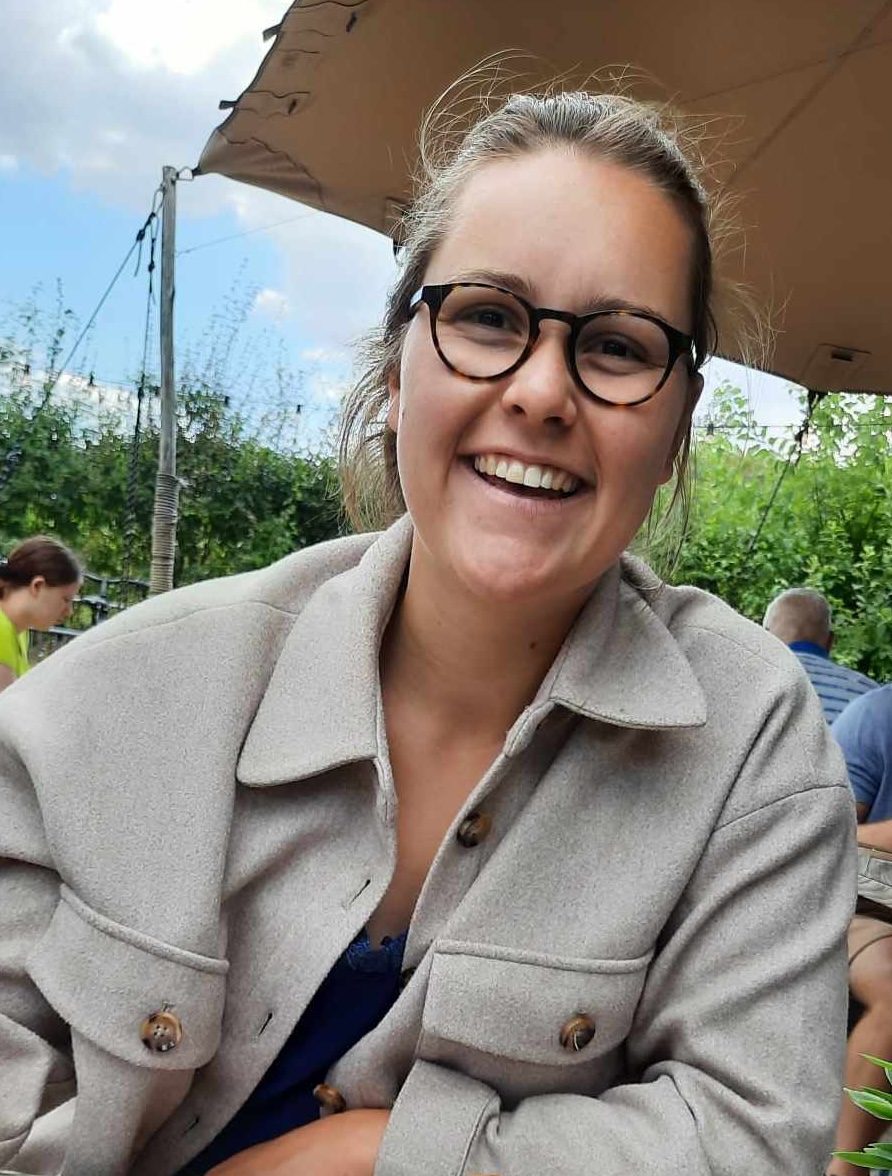Making work from home work for you
Fatigue, headaches, irritability, or sleep problems? These might be symptoms of stress caused by the unfamiliar demands of working from home. Angelique de Rijk studies work stress in nurses – and worries about the current situation and the transition back to normal.
Angelique de Rijk, Professor in Work and Health, struggled at first with the demands of working from home. “The Faculty of Health, Medicine and Life Sciences (FHML) is very interdisciplinary, so I teach in different modules. When we switched to online education, I had to adapt to different methods, depending on the course coordinator.” She is also parenting and taking care of elderly parents.
“It was quite challenging – at the same time, I wanted to support people and do something positive.” So, she drew on her expertise researching burnout and sustainable employment to write a piece on how to relieve work stress during the corona crisis for officeworkers. “Some colleagues were relieved that someone was talking about it – they’d found it difficult to acknowledge that they were struggling.”
Video calling with physicians at MUMC+ and colleagues, she noticed that mentions of feeling under pressure, fatigue, or trouble sleeping kept popping up. “I guess picking up on signs of work stress is a professional deformation,” she laughs. “We have received a lot of very good information and support on how to use the technology for working from home – but less on the psychological aspect.”
A ‘well done, keep going!’ in passing
On top of urgently learning how to use the software and logistical challenges like caring and parenting duties, people struggle with the lack of informal feedback and support. “It’s little chats at the coffee machine; you ask about procedural things or someone reassures you that you’re on the right track… Think of first-year PhD students living alone, far from home, without a routine – that’s a lot of uncertainty...”
Some might enjoy the autonomy; others might struggle with the lack of structure. “Leaders tend to be ‘active copers’ and enjoy it, but they need to be aware that not everyone sees it like that. They need to be approachable and redouble their efforts to check in on people.” Easier said than done via video call: is your interlocutor transfixed with anxiety or just buffering?
Leaders can provide structure, guidance, and positive feedback; employees can plan their days and make use of their autonomy. “Pick working times and stick to them, use the flexibility to work out or go for a walk. Structure can prevent insecurity and stress.” De Rijk thinks UM has done very well deciding early that education will be exclusively online until September. “We had that certainty and could plan around it.”
Zero-hour nurses around the clock
Uncertainty as a source of stress and eventually burnout and sick absences is a serious problem. “Around 40% of people in the Netherlands are self-employed or on zero-hour contracts – among the highest in Europe.” Originally intended to provide flexibility in responding to economic fluctuations, this arrangement has been used to squeeze profits out of employees, or more accurately: independent contractors.
“It reduces the sense of autonomy, not necessarily with regards to the tasks but to life.” That lack of self-determination – not knowing if you’ll work all day or not at all tomorrow – makes things difficult for parents or those taking care of sick relatives. De Rijk’s research on staff in nursing homes suggests that certainty and the ability to plan are indeed very important.
“There’s an amazing variety of schedules. It turns out that how well your schedule accommodates the demands your private life is a very good indicator of the likelihood of burnout and sick absences.” Occasionally applauding from our balconies might make health care professionals feel appreciated – but it doesn’t improve their work conditions. And how long until we go back from stylising them as heroes to seeing them as a burden on public finances?
Appreciation – and action
“We have a responsibility to keep in mind how important they are.” COVID-19 has increased the status of nursing, at least temporarily, and De Rijk sees this a possibility to improve the wages and work conditions to recruit new people into an understaffed sector. “We need more nurses and doctors – in general, but especially now, in order to allow staff to recover and recharge.”
De Rijk cites a study from China, which indicates that frontline nurses were actually experiencing less stress during the crisis. “There was a strong sense of having a mission, of working together rather than competing – individually or institutionally – and of being rewarded with recognition. But there will inevitably be energy-depletion and we need to have a strategy for dealing with the aftermath.”
In de Rijk’s experience, hospitals know that investing in human resources improves the quality of care. “It’s crucial to have permanent staff: they’re better trained, more familiar with protocols, and have a greater sense of ownership. Even if there isn’t a crisis, more permanent staff reduces the workload, stress and instances of burnout or sick absences.”
Back to normal the hard way
More capacity would help us respond better to a potential second wave of COVID-19. In the meantime, de Rijk can draw on her other research focus: reintegration in the workplace, in this case, the return to normal we are hopefully facing next. “Relapses aren’t uncommon because either the person who has been out has changed or the situation at work has changed – and that causes stress.”
The transition from a pandemic-schedule in health care back to normal won’t be easy. Treatment for regular patients was deferred as much as possible to free up resources; now, after an exceptionally stressful period, there are long waiting lists. Even without COVID patients, there will be an increased workload.
“Any transition, not only in hospitals, will have to be gradual to allow people to adapt to changed working conditions.” She thinks the transition back to the office, also at UM, should happen over a long period of time. “We should give people time – and also pause to reflect on which aspects of working from home were positive and how we could integrate them into our new routines.”

Angelique de Rijk is professor in Work and Health at the Faculty of Health, Medicine and Life Sciences (FHML) and a board member ath the department of Social Medicine.
This article is part of 'We're Open', a series of stories about the UM community’s many activities during the coronavirus pandemic.
Also read
-
Alisa moved from Moscow to the Netherlands at 17 years old to become a first-year Regenerative Medicine and Technology (RMT) bachelor’s student. Turns out Alisa’s adventurous spirit pushes her to brand-new things, such as the RMT bachelor’s programme and her hobby Tribal Fusion dancing.
-
In the upcoming months, the Faculty of Health, Medicine and Life Sciences will share tips on Instagram on how to live a healthier life. Not just a random collection, but tips based on actual research happening at our faculty. The brains behind this idea are Lieve Vonken and Gido Metz, PhD candidates...
-
Manon’s academic path led her to work on prevention and well-being at the workplace. A place where we spend most of our time. The master’s programme Occupational Health and Sustainable Work (OHSW) uncovered the interventions that companies and policymakers need to keep work sustainable. Her job as a...


